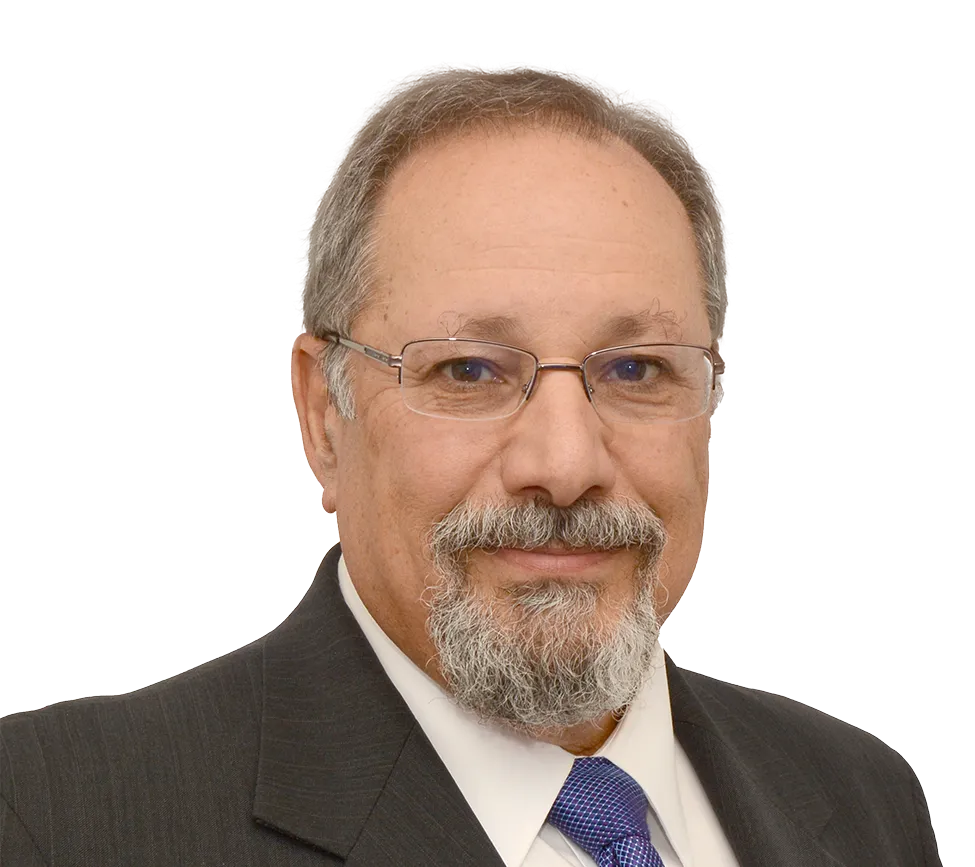

- Ph.D., Chemical Oceanography, University of North Carolina, Chapel Hill, 1989
- B.S., Geology, University of California, Los Angeles (UCLA), 1979
- Incident Command Training
- 40-Hour Hazardous Waste Operation and Emergency Response Certification (HAZWOPER)
- First Aid and CPR Training
- Adjunct Faculty, Biology/Physics -Calif. Polytechnic State Univ., San Luis Obispo, 2001-2007
- Woods Hole Oceanographic Institution, Guest Investigator, 2004
- NASA-Ames Research Center, National Research Council Fellow, 1988-1989
- Carnegie Institute, Stanford University, Post-doctoral Fellow, 1988-1989
- Woods Hole Oceanographic Institution, Guest Investigator, 1986
- American Association for the Advancement of Science
- Society of Environmental Toxicology and Chemistry
Dr. Haddad has focused on the strategic evaluation and tactical resolution of environmental problems, specifically Natural Resource Damage claims, for nearly 30 years; initially as an internal consultant for Unocal's Corporate Environmental Remediation and Technology group, later as an external consultant for industry in the private sector and for nearly a decade as the head of NOAA's Assessment & Restoration Division (ARD) as one of three leads for NOAA's Damage Assessment, Remediation, Restoration Program (DARRP), and for the past several years as a Principal Scientist and Vice President of the Environmental and Ecological Sciences Group at Exponent.
The skills brought by Dr. Haddad to these various efforts included expertise in geochemistry, biology/ecology, environmental forensics and chemometrics, as well as the ability to strategically assess, manage, and resolve complex environmental challenges. During his career, Dr. Haddad has been involved in and helped resolve complex CERCLA environmental assessments for mining sites and complex waste sites, has successfully led Natural Resource Damage Assessments (NRDAs), and has provided litigation support in the roles of both expert and consulting witness.
During his NOAA tenure, Dr. Haddad led the damage assessment program for NOAA on the Deepwater Horizon Oil Spill; the largest accidental marine oil spill in history and the largest NRDA in US history. In this leadership role, Dr. Haddad interacted extensively within the NOAA science community (NMFS, OAR, IOOS), the broader federal (USCG, DOI, USDA, EPA, and NRC/National Academy of Science), academia, and state (TX, LA, MS, AL, and FL) governmental science communities. He worked closely with senior leadership from across the government on various aspects of the case; including the White House (CEQ and OSTP), Congress, and DOJ where cross-cutting issues of national significance were addressed. During DWH, Dr. Haddad, managed a budget of over $120M per year, oversaw the supervision of over 300 FTEs, and briefed Senior Members of the Administration, Congress, state and local leaders. As part of the US Government's senior strategic group for this NRDA, Dr. Haddad was directly involved with developing and implementing the strategy that ultimately resulted in the settlement of the NRDA case between the Trustees and BP.
Prior to joining NOAA, Dr. Haddad participated in litigation and regulatory cases involving the assessment of natural resource injury, fate and transport of petroleum, metals, and PCBs with a focus on source evaluation, liability assessment, and allocation. In the private sector, Dr. Haddad's work has supported many corporations, including Unocal, Tesoro, Chevron, BP, Shell, Sherwin Williams, Teck, Ltd. Waste Management, as well as confidential clients. More recently, Dr. Haddad has provided Technical expertise in several international mediations.
Based on his work in both the private sector and for NOAA, Dr. Haddad has developed a strong national and international reputation. In 2015, Dr. Haddad was honored as the employee of the year for NOAA's National Ocean Service. And during his career, he has provided support and recommendations to the European Union and to foreign governments, including the Republic of South Korea, Thailand, and The Peoples Republic of China, on various aspects of damage assessment and environmental assessment.
